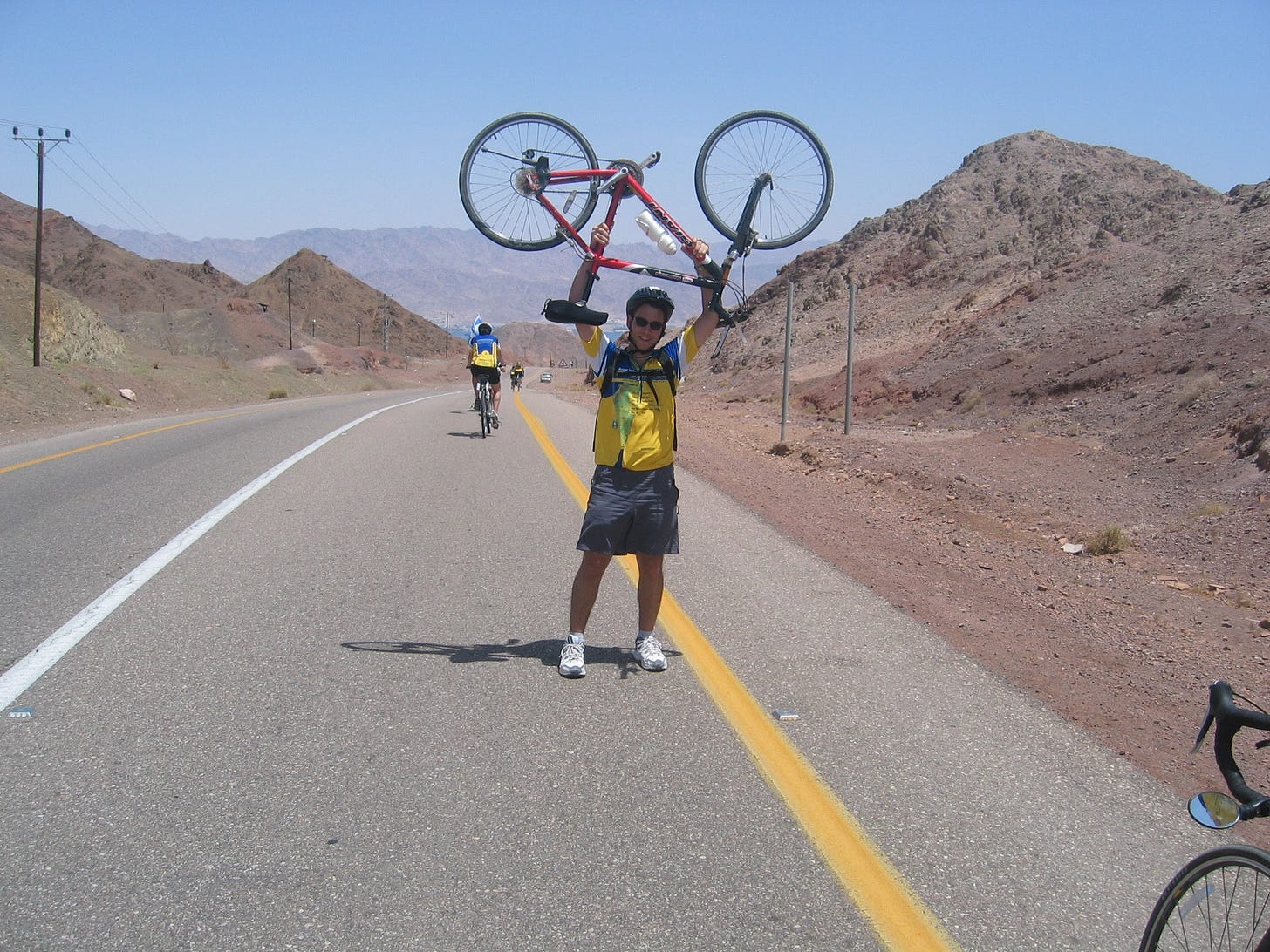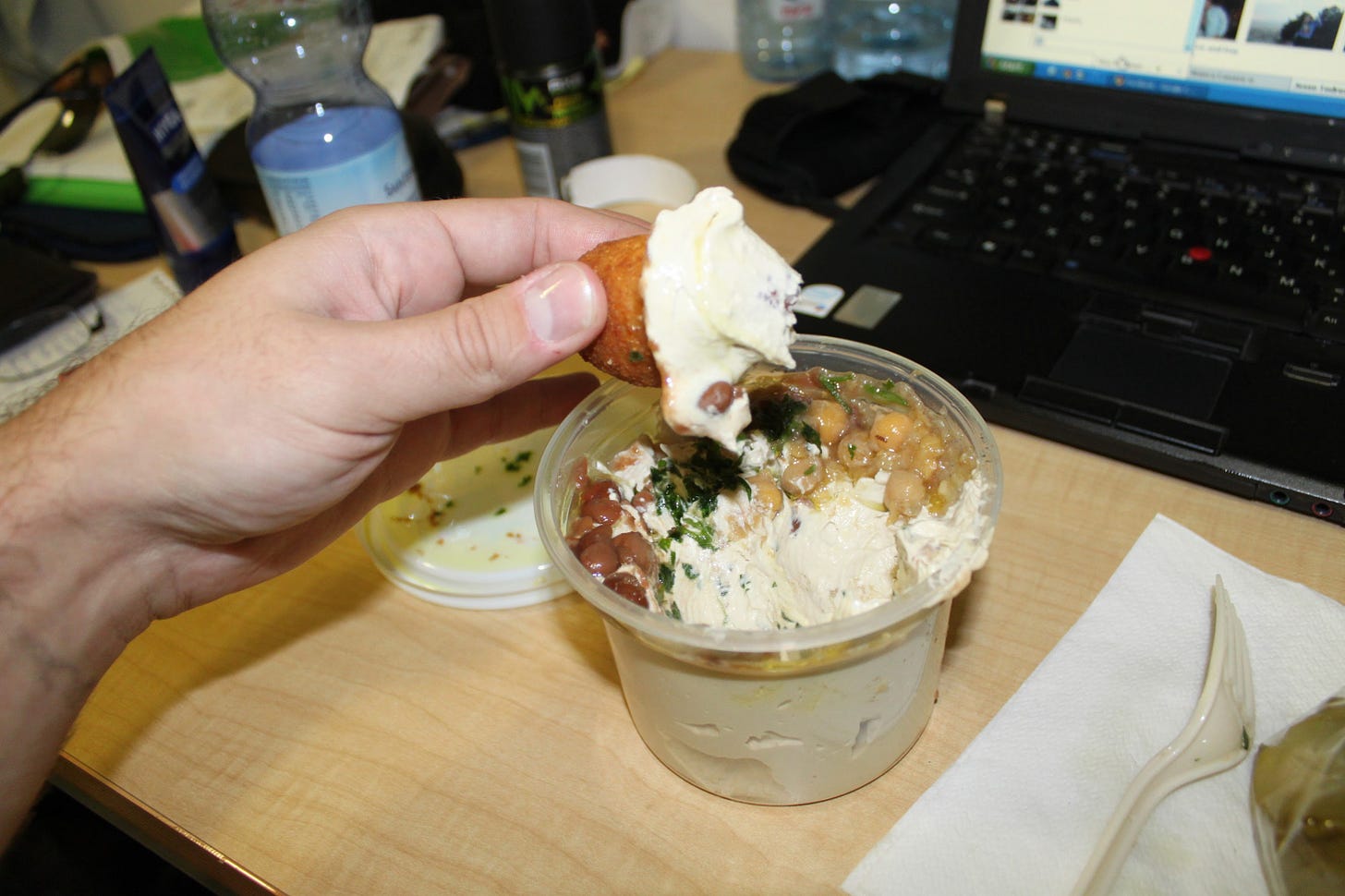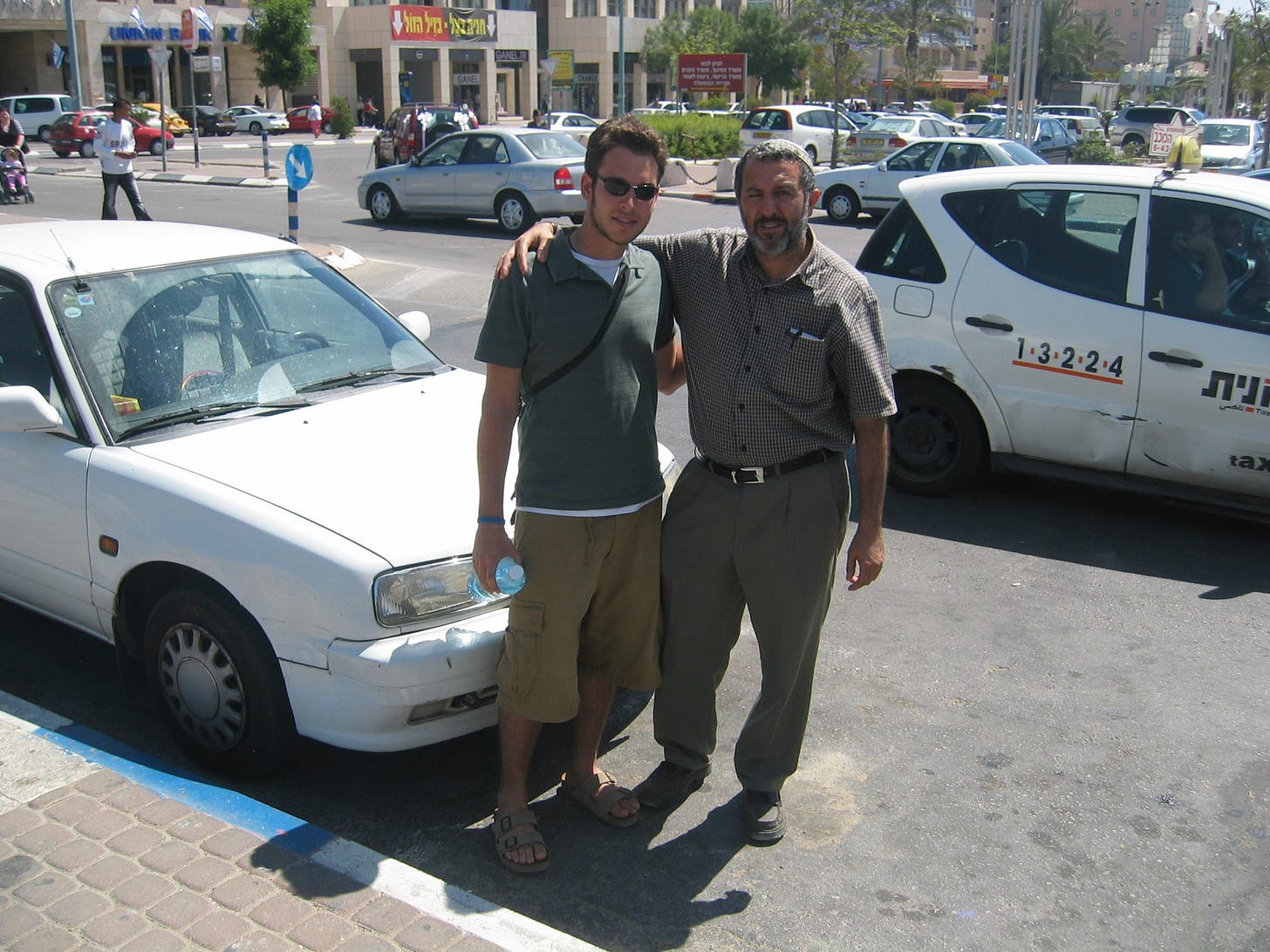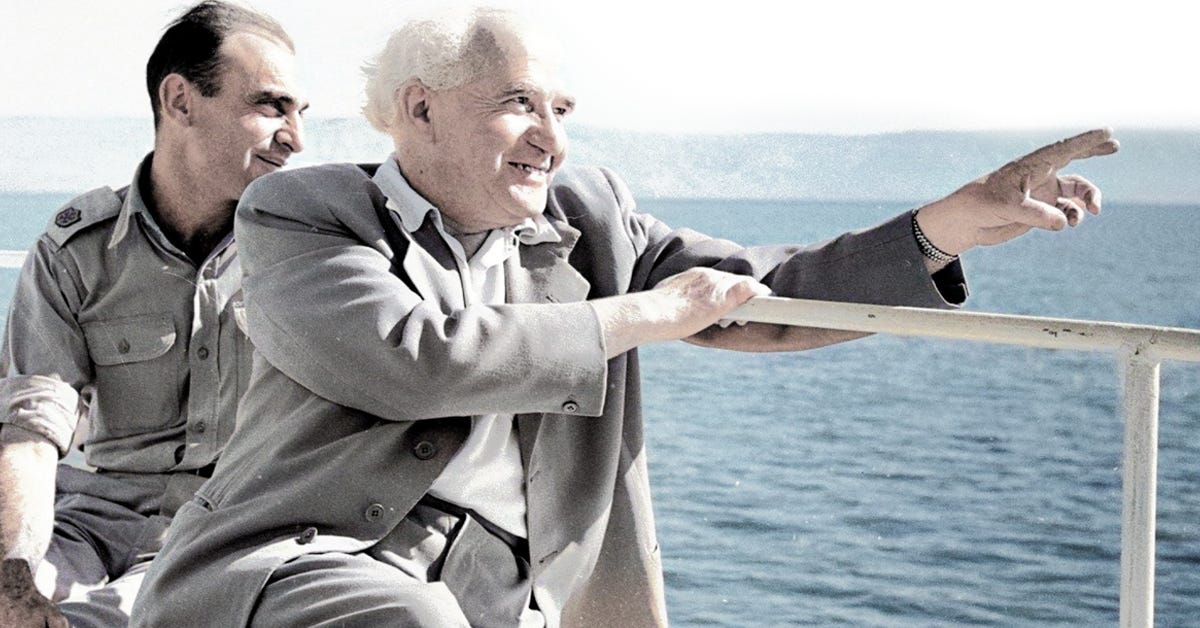I’m off to Israel on Sunday and I. Am. Excited.
I am privileged to be traveling with a delegation from the World Jewish Congress (WJC) for a short conference. While I have immense guilt leaving my family behind, I am super excited to go back “home”, where I haven’t been in several years.
According to the list I’ve just written on the back of a draft affidavit, this is my 13th or 14th trip to Israel. I know it sounds snobby to “lose count” of how many times you’ve traveled overseas, but I always find it interesting how so many Diaspora Jews could indeed lose count of the number of visits they’ve made to Israel. I’m generalizing, but telling non-Jewish Canadians that you have been somewhere so many times is always interesting. “Why would you go to the same place so many times??” If someone is an immigrant, yes they travel back home often to see friends and family, but for the most part, we are not immigrants from Israel, and yet, we go.
We are going “home” but not home. What sort of a place has that meaning, that you would invest so much time and money going to visit there again and again? Surely there are other places in the world to see? How could you possibly have the same level of excitement again and again? Well, that’s just the sort of place that Israel is, and there is always an idea that accompanies the place. Let me explain.
First Trip
My first trip to Israel was in 2000 when I was 15. I was in grade 9, and my family traveled to Israel and South Africa (where we come from - I’ve been to Israel way more times btw) for a three week trip that coincided with Passover. On that first trip, we hit up all the usual tourist sites, and just got a taste of what the country was like. I remember being dumbstruck by my Israeli cousins’ dumbstruck-ness that we kept kosher for Pesach.
In the years that followed, I went back several more times. I did a grade 12 CHAT Birthright trip, a Hillel mission, a fundraiser bike ride for the Arava Institute, a JNF mission, and an ill-fated trip with an ex-girlfriend (well, she was my girlfriend when the trip started…).
The more time I spent there however, and for whatever reason, I began to feel the allure of Israel fading.
The idea of Israel
At some point around 2008-2009, I remember telling people that, yes, I loved Israel, but that I liked the idea of Israel, more than the country itself. I can’t recall a single experience that made me feel that way, but I think I began to feel like more of an outsider in Israel with each new trip. I was just not aggressive, I found it difficult getting around when I was there, I wasn’t comfortable enough with my Hebrew, and I just didn’t feel like an Israeli. Despite how many falafels im chips I ate, something felt off, or I was expecting to fit in much more with the place than I did.
My idea of Israel at the time was a place that was a refuge for Jews worldwide, that was a direct link to our Biblical origins, that started as an ideal, that had to make sacrifices as it went along, and that is today a modern miracle in the heart of a broken Middle East. It was supposed to be the Israel that I learned about in day school, but I didn’t realize how hard it would be to identify with life there as a Canadian Jew. I loved the idea of Israel, I just wasn’t sure how I fit into it, aside from just being a tacky tourist.
Getting to know Israel
That changed in 2010 when I spent a semester at Hebrew University in Jerusalem while in law school. There, I got to learn what it was like to live in Israel (albeit as a short term oleh chadash), if just for three months. I quickly realized that I did, in fact, absolutely love the place as much as the idea. I got comfortable taking a bus, ordering food, speaking/fumbling my Hebrew, arguing with the clerk at the post office, getting a haircut, getting lost, finding my way again with the help of strangers, getting to know my Israeli peers in class, looking for obscure Zionist monuments on side streets, spending time with my Israeli cousins in Petach Tikva, Rosh Ha’ayin, and Sderot, and figuring the place out.
In a short time, I figured out how much the country grows on you when you’re not forcing yourself to try and find a meaningful experience on each 10 day trip.
Most recent visit
My most recent trip to Israel was in July 2018. My wife and I took our 10 month old daughter and spent two incredible weeks living at an Airbnb in Tel Aviv. We explored bakeries and supermarkets, cafes and restaurants, the nightlife but especially the early-morning life, and ate. Oh boy, we ate. We figured out how to clean an Israeli bathroom, and dealt with a brief flood that either came from the washing machine or the shower - still not sure. We learned how expensive Israel is too. Most importantly, we got into the swing of every day life in Tel Aviv, albeit as tourists. We weren’t rushing to fit in experiences or museums, but just wanted to absorb the experience (and the hummus).
Stand out experiences
In thinking about my upcoming trip, two distinct experiences there come to mind, that remind me of what Israel is as an idea and as a reality.
The first was in 2005 when my visit coincided with Lag B’Omer. One day I was visiting an old teacher of mine from CHAT who lives in Be’er Sheva. While having lunch at his house, the radio was on. Suddenly an announcement came on from the JNF. Paraphrasing, it went something like, “Tonight is Lag B’Omer, and we are wishing everyone a blessed holiday, but also please remember to be vigilant with your bonfires, so as not to cause any forest fires! Make sure you keep a bucket nearby.” I didn’t think anything of it, but scolded my former teacher for never teaching me the Hebrew word for bucket (dli).
On the bus from Be’er Sheva to Tel Aviv, I was just mesmerized by this announcement. Here in 2005, the national radio broadcaster is telling people across an entire country to contain their bonfires when they take to the streets to celebrate this archaic Jewish holiday that is hardly observed in any way in the Diaspora (and if it is, I’d say many people don’t know what we are celebrating). This was the Jewish State, as it lives and breathes.
Of note, the next morning when I left Israel, we flew through what I am certain was a low level cloud of smoke from the bonfires, still simmering from the night before.
The other experience was during our 2018 visit, while my wife and I were wandering around Tel Aviv one afternoon trying to find a place to feed our infant daughter. We just needed a place to sit for a few minutes, and wandered into a place called The Urban Garden, an outdoor event facility in the middle of an industrial part of Tel Aviv, between Jaffa and Florentine. It’s a walled off, big open space with beautiful trees, covered in astroturf that made it look like a park. It was a nice shaded setting and most importantly, the gate was open.
We sat down on the ground near the entrance. There was no one around, and I quickly put down a picnic blanket while my wife put together our daughter’s lunch. Suddenly, way down at the other end of the space, near the bar, a bald man stuck his head out and shouted, “Mah atem osim poh! Tzeh!” (What are you doing here?!? Leave!)
I shouted back in broken Hebrew , “Umm anachnu tzrichim latet la’bat shelanu… aruchat tzohoraim. Efshar latet lanu kama dakot?” (We have to give our daughter lunch, can you give us a few minutes?).
The guy just looked at us, waved a hand, and disappared inside. We continued, having asked permission, bracing ourselves to now ask forgiveness too. But a few minutes later, he called at us and waved me towards him. I went, 1000% certain I was about to be yelled at in an angry Hebrew I hadn’t heard since middle school. He didn’t say one word though, and told me to follow him inside. He led me to the kitchen, looked under the counter, and took out a plastic bag, filling it with ice. He then reached into the fridge, pulled out two cold Heinekens, a big bottle of Diet Coke, and a bottle of Fanta. He put the bottles in the ice-filled bag. He then went to the bar and pulled out a few bags of chips that he gave to me as well. I asked if I could pay him, and he just said, “Bete’avon” (the Hebrew “bon appetit”), and waved me out.
I returned to my family elated. “You’re not going to believe this.”
This was the reality of Israel. Yes, sometimes Israelis can be harsh or aggressive, but on the inside, especially in my experience when it comes to talking about family or children, they melt. Their true sabra-side comes out, and we were touched by the hospitality. We finished feeding our daughter, shared one of the beers, and went on our way with a wave and a “todah raba!” He wasn’t expecting anything in return, but just wanted to make sure that if we had stumbled into his establishment, that we were happy.
To me, this is Israel that accords beautifully with the idea of Israel, as long as you keep your eyes open and know what you’re looking for.
Zionist Alertness
During WW2, when things were heating up between the British and the Jews in the yishuv, David Ben Gurion would travel from assembly to assembly preaching the idea of “Zionist Alertness.” As Tom Segev writes in his recent book A State at Any Cost, “[Ben Gurion] demanded that Palestine’s Jews “stand tall,” including to the British regime. “I am not interested in whether they love or hate us, but I want them to respect us…We will act with honor and they will respect us.””
To Ben Gurion, Zionist alertness was the notion of Zionist pride and respect. To him it was an ideological and ethical experience, and he noted, “the Jews of Palestine needed to tell the Jews of the Exile: ‘Zion, not as a lesson for the future, but for our own time.’”
Zionism, and the State of Israel that it created, can be different things to different people. As I think about my brief forthcoming trip, yes, I will be trying to find the best used bookstores in Jerusalem, the best kubbeh, and 10 minutes alone to feel the atmosphere of Jerusalem. But, what I’m really looking forward to is spending time in the Israel that I miss, that I think and write about so much, and aligning the ideals with the reality.
In my opinion, Israelis very much adhere to Ben Gurion’s ethos that respect is more important than hatred or admiration. I think the people and the country have excelled on that front. Similarly, there is much today to take from the notion of Zionist alertness, and of standing tall, whether in exile or Israel. It is the only way to stand up for ourselves.
What I’ve learned in 23 years of visits is that Israel is not perfect - far from it. But it is ours, and it can be what we make of it.










Loved reading this Adam! Excited to hear about this experience.